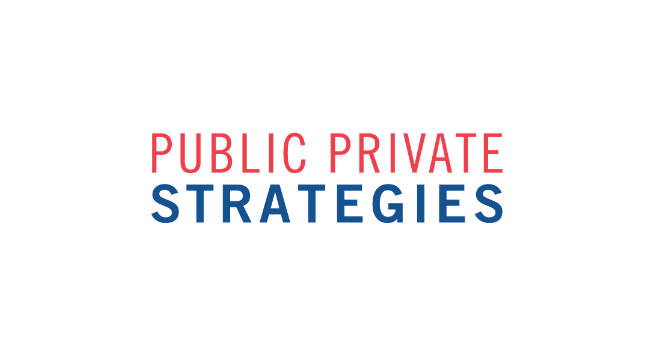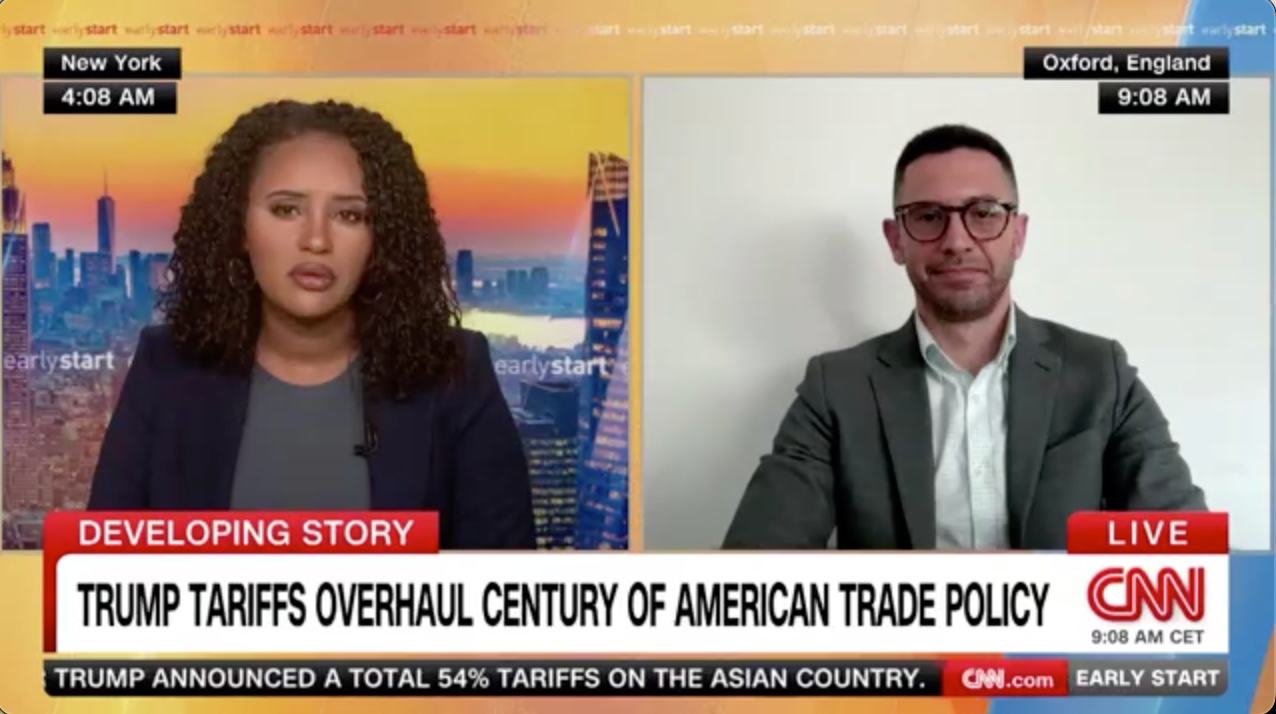Empowering Businesses To Fix Democracy: A Conversation With Leadership Now Project CEO Daniella Ballou-Aares
The misinformation about the 2020 presidential election, the January 6 Capitol riot, and passage of voter suppression laws in several states have challenged American democracy in unprecedented ways. As many as 25% of U.S. voters do not have confidence in elections, according to a recent poll by NBC News.
Not only is this bad for democracy, it’s also bad for business. When democracy is thrown into chaos, so is the economy. A
Small Business for America’s Future survey found that 60% of small business owners are concerned with the current state of democracy. As a result, they are speaking up on these issues now more than ever before, and business-focused organizations, such as the
Black Economic Alliance, are organizing a powerful executive voice to respond.
As CEO of the
Leadership Now Project, Daniella Ballou-Aares heads a membership organization of business and thought leaders taking action to strengthen American democracy. She was previously a Partner and Director for the Americas at Dalberg, which she helped grow from a start-up to a leading global group of social impact businesses, and also spent five years in the Obama Administration as the Senior Advisor for Development to the Secretary of State, serving under Secretaries Clinton and Kerry.
I recently had the opportunity to speak with Daniella about how business leaders can help combat voter suppression. I appreciate her taking the time to speak with me and below is a readout of our discussion.
Rhett Buttle: What is the current outlook of legislation in Congress, and what do business leaders need to know about it?
Daniella Ballou-Aares:
The democracy legislation currently being proposed to Congress comes at a critical juncture in our nation’s history. The Senate is considering the Freedom to Vote Act, which builds off of Sen. Manchin’s compromise framework and includes the most critical, evidence-based policies from previous legislation, such as early voting, automatic voter registration, ensuring nonpartisan election administration and campaign finance transparency, and ending gerrymandering. Many of these policies were temporarily enacted during the 2020 election and helped make it the safest, most secure election in our nation’s history. The Freedom to Vote Act will help us modernize elections for the 21st Century while protecting the right to vote.
Business leaders understand the importance of a healthy democracy and taking part in the democratic process. That is why we helped mobilize thousands of executives and companies to offer time off for voting, safeguard the will of the voters ahead of the 2020 election, and also take action in response to the January 6 insurrection in 2021. Bottom line is that business leaders were crucial in the success of the 2020 election, and they know that robust federal standards are the best way to sustain fair and free elections. They also know that state-by-state judicial and legislative fights are bad for democracy, a distraction from real priorities, and a hindrance to our economic recovery.
Rhett Buttle: In July, President Biden called for a new "coalition" of advocates to protect voting rights, and cited the business community as one of those stakeholders. What would you like to see more of from the White House as they seek to engage this broader coalition?
Daniella Ballou-Aares: I was encouraged by the President reinforcing his commitment. Now we’ll need to see sustained action.
In 2006, when the Voting Rights Act was renewed under President Bush, major business leaders helped make the case for its renewal. President Biden and Vice President Harris could secure similar support for federal legislation from individual business leaders today. The absence of support from conservative members of Congress doesn’t in fact mean they fundamentally oppose the terms of the bills at play, which under different circumstances would typically pass 98-0, as the last update of the Civil Rights Act did. It just means that some members of Congress care more about scoring short-term political points than they do the long-term health of our democracy. The White House should now do the same and galvanize leaders in business from across industries and geographies to make their support for voting rights and democracy more visible.
Rhett Buttle: What role do corporate leaders play in the national conversation on voting rights, and how does their example set the tone for the business community? Why is it important for business to engage on voting rights issues?
Daniella Ballou-Aares: Business leaders play a critical role in the conversation on voting rights and election reform for two main reasons. The first involves a bit of self interest: evidence tells us that stronger democracies have stronger economies, and a strong democracy depends on protecting the right to vote. The second is a question of businesses’ place in society. I don’t expect executives to become politicians, but I do expect them to pay attention to the broader currents in society which can impact their businesses, employees, and the communities they are part of. Restrictive voting policies weaken democracy, which should worry all Americans. They are a tactic used to separate politicians from their constituents and insulate them from meaningful accountability. America’s business leaders know that’s no way to run a business and that it’s no way to run a government.
Across the board, business leaders understand the importance of protecting voting rights: according to our own polling at Leadership Now Project, as well as data from Harvard Business School, the majority of business leaders support the political reform needed to ensure fair, equitable access to voting. As we saw in the lead-up and aftermath of the 2020 election, when business leaders are vocal about protecting democracy, they inspire others across industries to follow in their footsteps.
Rhett Buttle: What are specific things business leaders can do to help us build a healthier democracy, both nationally and in their local community?
Daniella Ballou-Aares: Business leaders can take action in a number of ways to protect voting rights, demonstrate leadership, and help us build a healthier, more innovative democracy. These include:
- Stand up for evidence-based election reform in your state modernization: Americans can have almost any good or service delivered to their home within a day or two: This is the most innovative country in the world, and our elections should reflect that. Companies should support common-sense policies at the state level like automatic voter registration, early voting, and absentee voting -- policies like these would safely and effectively modernize our elections and allow more people to participate in our democracy. Consider joining or forming local coalitions like this one in Wisconsin, or crafting open letters to voice concerns about laws that are more about protecting politicians from their voters than they are about ensuring accessible, secure elections.
- Re-examine your corporate political giving: Political giving (or withholding) is a powerful tool to encourage action, and data from Leadership Now Project showcases the power this lever holds for the business community. Microsoft provides a good example: they have redirected their funding from lawmakers who voted against certifying the 2020 election towards pro-democracy organizations.
- Supporting national voting legislation: Federal voting legislation is a clear imperative given that individual states are introducing laws that make it harder for their citizens to access the ballot box and spread falsehoods about the 2020 election results. Business leaders can make public statements in support of the Freedom to Vote to preserve every American’s right to vote. Companies including Amazon, Apple, and Starbucks have joined a coalition in support of federal voting rights. Use your platforms to voice your support.
Rhett Buttle: What would you say to business leaders who are concerned that talking about these issues may impact their bottom line?
Daniella Ballou-Aares: These issues are not unpopular. For example, the vast majority of Americans also believe it should be easier to vote early in elections. We’ve seen no evidence suggesting that speaking up on social issues negatively impacts a company’s bottom line — in fact, the opposite. The 2021 Edelman Trust Barometer finds business to be the most highly trusted institution, seeing more trust than non-governmental organizations and governments. Business leaders have a responsibility to leverage this trust in order to protect the right to vote. Furthermore, 86% of respondents expect CEOs to speak out on social issues, outlining a clear imperative for business leaders to take action. At the end of the day the business community has the resources, relationships, and responsibility to help galvanize the rest of society to meet its greatest challenges, from hyperpolarization to climate change. The first step toward rebuilding that trust is ensuring fair representation for all Americans.
This piece originally appeared in Forbes on September 28, 2021. You can view it online here.
Rhett Buttle is the founder of Public Private Strategies, Executive Director of the Small Business Roundtable, Founder of the NextGen Chamber of Commerce, a Senior Fellow at The Aspen Institute, and a contributor for Forbes.
WANTING MORE NEWS? SIGNUP TODAY
Contact Us











